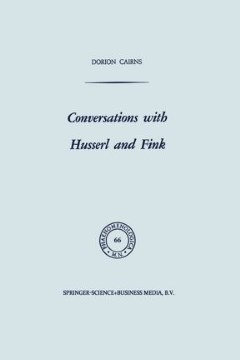Conversation with Fink, 20/1/32
pp. 66-67
Abstract
I spoke of the passage in the Ideen (§ 130) where Husserl speaks of expressions which apply to the objective sense of a noema as having a noematically modified sense. Fink agreed that this means only that they have a phenomenologically reduced sense, not that we can find another, phenomenologically reduced sense for such expressions; which sense is not noematically modified, but directed to a non-noematic, transcendent object. Fink considers that the fact that in thinking out the Ideen Husserl took his point of departure from psychology has resulted in a directing of attention on the phenomenological-noetic constitution of "Welt-vorstellung" 〈"idea of the world", "(mental) objectivation of the world"〉 , and a neglect of "Welt-konstitution" 〈"world-constitution"〉 ; i.e., an essential noematic moment is neglected. The psychologist never comes beyond Vorstellungs-konstitution 〈constitution of a (mental) objectivation〉 . If he distinguishes between Vorstellung and Welt-an sich 〈world-in-itself〉 , the distinction is within a Vorstellung, and the alleged Welt-an-sich is a Welt-an-sich-Vorstellung 〈(mental) objectivation of a world-initself〉 , which is further to be contrasted with a real Welt-an-sich. And so on, in an infinite regress. Husserl's preoccupation in the Ideen with Weltvorstellungskonstitution 〈constitution of an "idea" or (mental) objectivation of the world〉 makes it possible to interpret certain passages realistically. Consequently Gerda Walther63, in her Ausführliches Sachregister 〈detailed subject-index) distinguishes passages in the Ideen as Pro and Contra a phenomenological idealism.
Publication details
Published in:
Cairns Dorion (1976) Conversations with Husserl and Fink. Den Haag, Nijhoff.
Pages: 66-67
DOI: 10.1007/978-94-015-6890-6_45
Full citation:
Cairns Dorion (1976) Conversation with Fink, 20/1/32, In: Conversations with Husserl and Fink, Den Haag, Nijhoff, 66–67.


